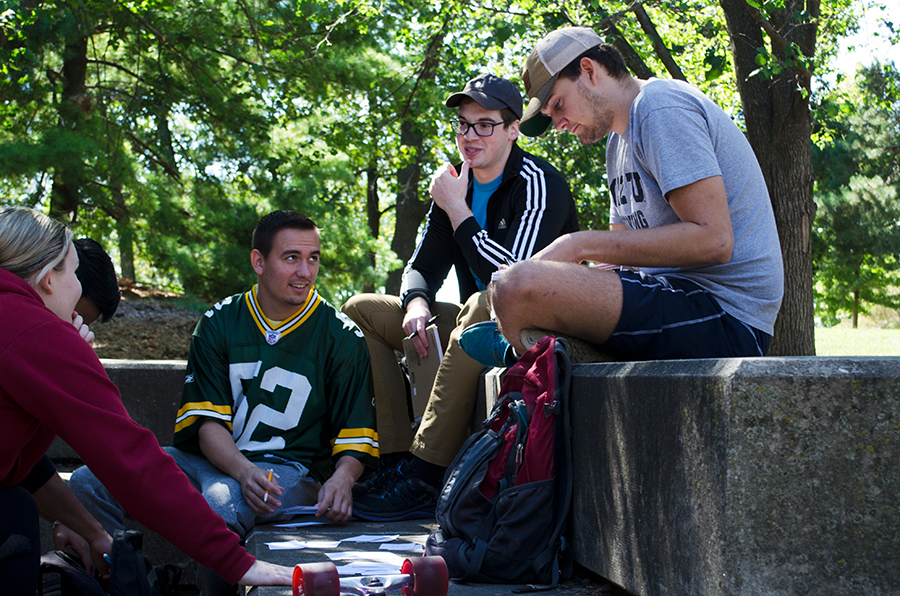Actress Mary Lou Cook once said, “Creativity is inventing, experimenting, growing, taking risks, breaking rules, making mistakes, and having fun.” Innovation requires these things, but sometimes, the engineering curriculum focuses more on technical prowess and precision than on innovation; while not inherently negative, this focus can inhibit the mindsets and behaviors that lead to world-altering discoveries.
The world needs an engineering workforce capable of deploying unique solutions to our most pressing, complicated problems. To get that workforce, engineers need to be trained to attack problems from new, interesting angles and to create solutions heretofore undreamt of.
That’s why two faculty members from MU’s Biomedical, Biological & Chemical Engineering Department teamed up with faculty from the Theater Department and College of Education in the last few years to incorporate theater education techniques into their senior design courses.
Now, they’ve received a National Science Foundation grant to train their colleagues and expand their novel approach. Mizzou Engineering’s Heather K. Hunt and Ferris Pfeiffer, Theater’s Suzanne Burgoyne, and Education’s Johannes Strobel are the investigators on NSF-funded project “Creativity throughout the Curriculum: Educational Practices to Build the STEM Workforce of Tomorrow.”
“Creativity is the foundation of innovation,” Hunt said. “Engineering is very rigorous. It’s a rote mentality.
“We’re working to strip out their underlying assumptions so students can find hundreds of solutions to complex problems.”
Hunt and Pfeiffer frequently use the example of getting toothpaste out of its tube in their classes and presentations. Normally, the initial student response to the question of “how” is one of two possibilities — squeezing it from the bottom or from the middle. But then they ask what is the loudest way to get it out of the tube, or the silliest. That simple semantic change leads to a whole array of possibilities. Why not jump on it? Hit it with a jackhammer? Blow it up with dynamite? All will achieve the same result, after all. The toothpaste, inevitably, evacuates the tube.
While not all of the answers are practical, they do illustrate a larger point — that we as humans often limit our thought processes, sometimes unwittingly. Breaking engineers of this habit allows them to think of new solutions and take that mindset into the workforce, and Hunt and Pfeiffer have three years of data to support this assertion.
That data landed the team this new, three-year grant. The goal now is to expand these lessons beyond just one class in one major in senior year by training multiple faculty members — first in BBCE, then potentially throughout the College — on how to incorporate theater-type lessons into their existing engineering curriculum.
“We’ve done it to a single class. Now we want to add it to standard research training. The thought was, how do we take what we’ve done and apply it earlier, like sophomore year?” Hunt explained.
Burgoyne has provided lessons and critical support in how to best approach creativity-focused learning since initially teaming up with Pfeiffer in 2016. Strobel has been key in how best to set up the classes for needed assessment and evaluation, building collaborations and determining which educationally-focused grants to apply for, mapping out a plan for the future.
The plan is to spend a year preparing how best to train the teachers, including summer workshops, before beginning with a group of five faculty in the bioengineering programs; eventually, 10 faculty will be trained to implement these methods in their own courses.
“We want to be able to show the students that they can have a rigorous education and still be creative,” Hunt said.
